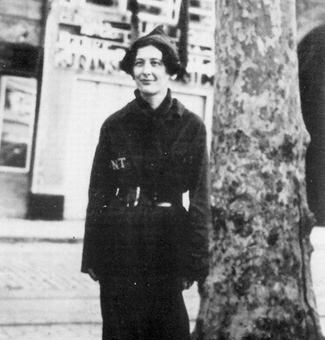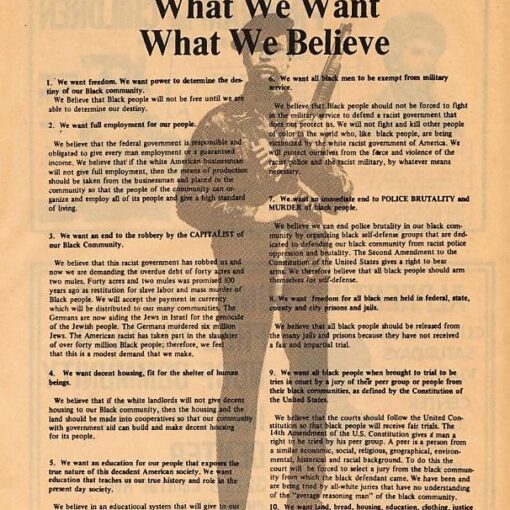
By Bernard E. Harcourt
What are the stakes today in revisiting the mid-twentieth century debates between Franz Neumann, Friedrich Pollock, Otto Kirchheimer, and Ernst Fraenkel over the concept of “state capitalism” and their analysis of National Socialism as a totalitarian economic regime – other than matters of historical interest? The discussion at Coöperism 8/13 highlighted at least three.
1/ The relevance of the concept of “state capitalism”
The theory of “state capitalism” that Pollock developed, and that was shared by many commentators, was intended to include the American economic regime at the time. It included the New Deal. Pollock explicitly incorporated the American administrative state in his discussion as representing a different type of “state capitalism” than the totalitarian form in Germany. Regardless of the distinctions, though, they both fit under the same rubric of state-governed economies. That was Neumann’s understanding of the framework of state capitalism as well. As he wrote, “in the view of this school, every country is going the way of Germany.” And he added, “the New Deal is regarded as the forerunner of bureaucratic collectivism and of a managerial bureaucracy.”[1]
It is often tempting, in discussing these historical debates, to align oneself with one of the authors and criticize the other, or to favor one theory over the other; however, that misses the more productive possibility: to tease out, from the debate and from the different positions and arguments, landmarks for us to orient in our own analyses of the present.
And these debates offered many such landmarks. They allow us to pinpoint the key actors and interrogate their relations: What are the relations of power today, in the United States, between private equity capital, business conglomerates (today’s Amazon, Google, Apple, Meta, etc., the equivalent of Krupp or IG Farben), politicians, and presidential administrations? In times of crises, like the financial crisis of 2008 or the COVID pandemic crisis of 2020, how do government leaders (e.g. the head of the U.S. Treasury, Hank Paulson, Tim Geithner, Steven Mnuchin, or Janet Yellen now) relate to the heads of the large financial institutions, the leading corporations and their CEOs, and to the members of Congress?
In effect, we can follow Pollock’s and Neumann’s analyses to connect the dots in our present. And if we do—of course this requires a longer treatment—we will see a strong element of “state capitalism” in today’s American political economy. Not just during times of crisis, when the U.S. Government bails out the “too big to fail” institutions, but also during ordinary times, when the state enforces the legal framework that makes possible what looks like a free market. Especially during non-crisis moments, it is the government’s enforcement of private rules of ownership and contract, behind the scenes, that make possible the seemingly free aspect of market exchange—that was the point of The Illusion of Free Markets.
And when we add to American state capitalism other forms of state or oligopolistic state capitalism, as in China, Russia, or elsewhere, it becomes apparent that the dominant form of late capitalism today, throughout the world, may be “state capitalism.”
It is also important to use Pollock, Neumann, and Fraenkel’s analyses to distinguish between state capitalism and authoritarian, or totalitarian, or fascist economic regimes. Fraenkel may have been pointing at that in his distinction between the Normative and Prerogative States of the Dual State. There may be less of a way to draw those distinctions with Neumann, given that he interpreted National Socialism as not following any principles, whether economic or political. It was purely a pragmatic system seeking efficiency and productivity to conduct the war. There was no dogma or doctrine involved. It was pure pragmatism in the face of material needs. In this sense, Neumann viewed National Socialism as purely political. It involved “the primacy of politics over economics,” as he wrote; it “consciously remained a political party without any basic economic orientation.”[2] Rather than call it “state capitalism,” Neumann coined the term “totalitarian monopoly capitalism”:
The German economy of today has two broad and striking characteristics. It is a monopolistic economy – and a command economy. It is a private capitalistic economy, regimented by the totalitarian state. We suggest as a name best to describe it, “Totalitarian Monopoly Capitalism.”[3]
For Fraenkel, there is a distinction between the Normative and the Prerogative states, the two parts of the Dual State. The Normative State, which is the more regulated space, deals primarily with the economic sector and with issues of private property. It operates “clearly as the legal frame-work for private property, market activities of the individual business units, all other kinds of contractual relations, and for the regulation of the control relations between government and business.”[4] It is in the strictly economic domain that legal rules operate more. As Fraenkel wrote, “although the Normative State retains some powers in spheres that are not strictly economic, the field of economics remains the most important domain of the qualified ‘Rule of Law’ in present-day Germany.”[5]
The Prerogative State, by contrast, is the terrifying, discretionary realm that has eradicated labor rights and labor institutions, and serves as the enforcer of political will. Ultimately, when he sums up his argument, Fraenkel writes that “All activities, through the medium of state controls, have been put to the service of political, chiefly military, expansion.”[6]
The contrast to mid-twentieth century should help distinguish between the operations of prerogative states, then and now. Bill Scheuerman gives a good illustration of the prerogative state in Nazi Germany, drawing on Douglas Morris’s book on Fraenkel, Legal Sabotage: Ernst Fraenkel in Hitler’s Germany (Cambridge, 2020):
Morris shows that a mid-1936 labor-law case, involving the seemingly mundane matter of severance pay based on a 1932 collective-bargaining agreement, helped crystallize Fraenkel’s thinking. Fraenkel initially seemed to win the case, before learning a few days later that the Gestapo had simply vetoed the court’s decision and seized the money owed the dismissed workers. The case jolted Fraenkel into formulating his theory: it demonstrated that whenever dissatisfied with court rulings, political instances (e.g. the Gestapo) could and would simply trump them. Revealingly, when Fraenkel asked at a hearing about possible limits to the Gestapo’s power, he was pointedly told that the secret police could even dissolve marriages, if they desired.[7]
There is no doubt that these methods differ from the present. So the question becomes, how and at what point a system of state capitalism can tilt into more authoritarian directions.
2/ The relationship between law and political economy
It is utterly remarkable, and strongly indicative, that the locus of the famous Neumann-Pollock-Fraenkel debate over the Nazi regime shifted from political economy (namely, over the proper characterization and analysis of National Socialism and whether the term “state capitalism” was appropriate) to one of the most celebrated twentieth-century debates on law and its role, more specifically on the “rule of law” and the relationship between positive law and normative justice.
That was due in part to the fact that several key protagonists were lawyers—they were active labor lawyers, actually partner at the Berlin law firm of Fraenkel & Neumann. As scholars and lawyers, that affected the nature of the debate.
But it does not explain everything, since other key participants in the debate, such as Friedrich Pollock and later Hannah Arendt, who also weighed heavily into the rule-of-law questions, were not lawyers—instead, sociologists, economists, and philosophers.
In other words, there is something inherent in the problematic that ties law to political economy. It has to do with the legal encasing of political economy: the fact that—as the Law and Political Economy movement today recognizes, and as earlier legal movements such as the Legal Realist and Critical Legal Studies movement, recognized—markets are encased in legal regulation. Law makes and shapes markets. Or, as David Singh Grewal, Amy Kapczynski, and Jedediah Britton-Purdy write in their manifesto, “Law gives shape to the relations between politics and the economy at every point. It is the mediating institution that ties together politics and economics.”
The mid-twentieth century debates serve not only as an illustration of the link between law and political economy, but also as a wealth of resources to understand and explore that relationship.
Incidentally, on the synergy between these debates and contemporary legal scholarship, it is also interesting that Neumann took the view that one could not analyze a political economic system on the basis of the statutes on the books. Statutes and administrative forms do not reflect the reality on the ground. “They tell us very little,” Neumann wrote.[8] Instead of relying on statutes, legal decisions, administrative rules, or decrees, Neumann believed that it was essential in order to properly study the actual operation of the national socialist economy to rely instead on newspapers and periodicals from the country itself.[9] In a way, Neumann was pre-figuring the Law & Society movement and its dichotomy between law on the books and law in action.
3/ The rule of law and authoritarianism
A third question raised by Fraenkel, Neumann, and Pollock in these debates is whether the “rule of law” can ever be authoritarian or fascist. In other words, whether the two concepts—the rule of law and fascism—are mutually exclusive, or a contradiction in terms. Neumann’s challenge that the Nazi regime was lawless and therefore a “non-state,” no state at all, was really a proxy for another question: Can the rule of law ever be fascist?
Most commentators, including Neumann and Fraenkel, try to sanitize the term “rule of law” so as to avoid allowing it to be tainted by authoritarian regimes. This was what fueled the Hart-Fuller debate over the proper definition of law (whether to approach it from a purely positivist perspective or to impose moral criteria to contain it). It is also where Hannah Arendt’s intervention fit in.
But this question is of increasing importance as we head into another presidential election. Aspects of authoritarian rule of law continue to plague the country. The fact that we are still detaining dozens of men at Guantanamo Bay who have never been charged with an offense, now for more than twenty years, at a time when the war in Iraq and Afghanistan are over, is a terrifying reflection of authoritarian rule of law. But things may get even worse depending on the outcome of the 2024 elections.
* * *
So these mid-century debates raise important questions not only about state capitalism, but more broadly about law, political economy, and the rule of law. The stakes, in the end, could not be higher. It is crucial that we return again and again to these mid-century debates, with an honest and open mind, to better understand our times.
To watch the seminar and read the other essays, please go to Coöperism 8/13
Notes
[1] Franz Neumann, Behemoth: The Structure and Practice of National Socialism, 1933–1944 (New York: Oxford University Press, 1942), p. 225.
[2] Neumann, Behemoth, p. 232.
[3] Neumann, Behemoth, p. 261.
[4] Ernst Fraenkel, The Dual State: A Contribution to the Theory of Dictatorship (1941), p. 185.
[5] Fraenkel, The Dual State, p. 185.
[6] Fraenkel, The Dual State, p. 184.
[7] Scheuerman, “Recalling and/or Repressing German Marxism? The Case of Ernst Fraenkel,” Modern Intellectual History (2022), 19, 971–981, at p. 978.
[8] Neumann, Behemoth, p. 227.
[9] Neumann, Behemoth, p. 227-228.




